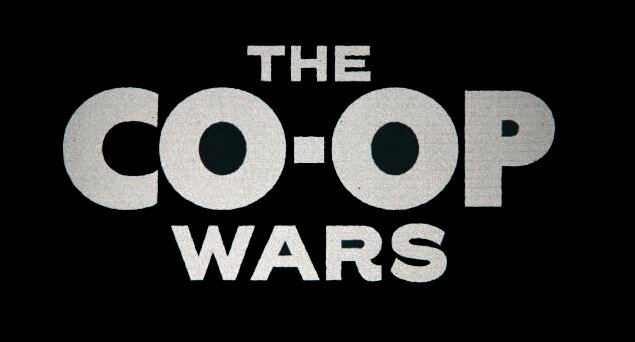Yes, it’s true, and yes, it happened in 1976, when Gary Cunningham was still a teenager. The Marxist in question was a member of the Co-op Organization (C.O.) who had come to attack Gary’s uncle Moe Burton and to take control of the Bryant-Central Co-op, which Moe had founded. The C.O. had been helpful in starting the co-op and Gary describes taking part in the C.O. takeover of the Peoples’ Warehouse. (For a view from the other side of occupation, see Ken Logdon’s interview.) The relationship soured when Moe refused to follow the C.O. line and he became their chief target, leading to the threats, firebombing and brawl Gary describes.
We interviewed Cunningham for The Co-op Wars about his and his uncle Moe’s involvement in the creation of the Bryant-Central Co-op, a predominantly African-American co-op that existed in the mid-to-late 1970s near where Seward Co-op is building its Friendship Store today. Cunningham’s teenage years involved homelessness, communes, Black Panthers and ending up on both sides of the “Co-op Wars.”
Gary is now a national leader for economic equity at Prosperity Now and was the First Spouse of Minneapolis during the term of his wife, Betsy Hodges. Back in the ‘70s, he lived with his uncle Moe Burton, who started the first Black Panther chapter in Minneapolis.
Cunningham says his uncle got politicized in college, where he joined the Socialist Workers Party, and then moved on to the Panthers. As a youngster, Cunningham had run away from home and was living on his own in Minneapolis’s West Bank. Burton came to find him: “He really provided a home of safety, a lot of love and a lot of caring.”
Burton took his nephew to live in Oakland, CA, for a while, in a Black Panther community, where Cunningham says, “All these people … would be in and out, from college professors to street people.” Cunningham remembers befriending other kids whose parents were Panthers.
“You were proud to be black. You were proud to be who you were. You were proud to be in the skin you were in, not somebody else’s skin. … It shaped the rest of my life for sure.”
When they returned to Minneapolis, Burton organized a community garden in the Bryant-Central neighborhood. This was the beginning of the Bryant-Central Co-op.
Cunningham says Burton had abandoned the Panthers’ acceptance of violence as a strategy: “His whole thing was, ‘How do we make the world better for people who didn’t have what he had?’ … He really never had a lot of money - money was never his deal. But what was his deal was to organize, and organize, and organize. That’s what he was - he was an organizer.”
